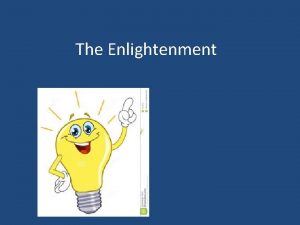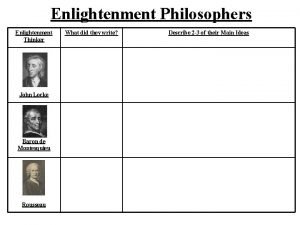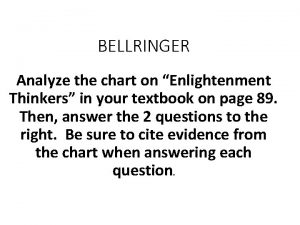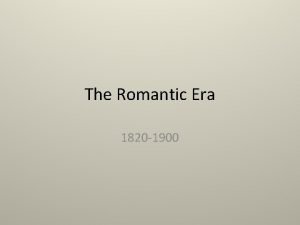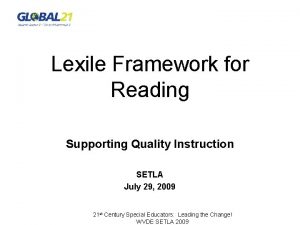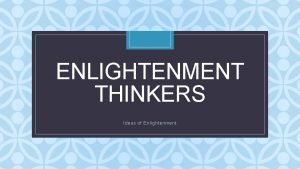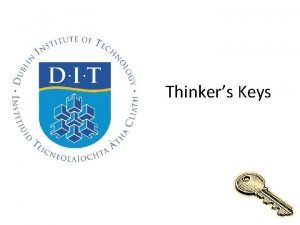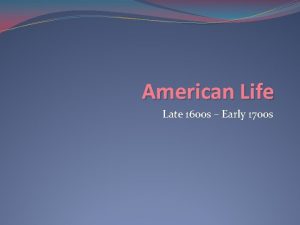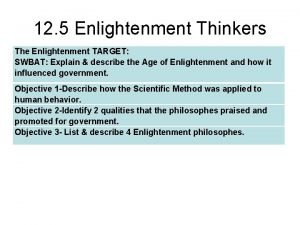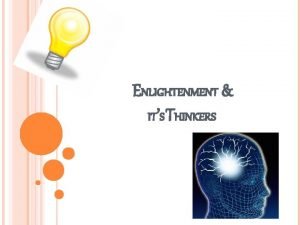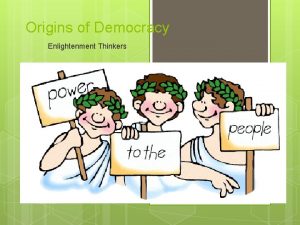AMERICAN ENLIGHTENMENT THINKERS LATE 1600 S THROUGH 1700








- Slides: 8

AMERICAN ENLIGHTENMENT THINKERS LATE 1600 S THROUGH 1700 S

ENLIGHTENMENT • Shift of thinking in late 17 th century and early 18 th century • Began in Europe, spread to U. S. • Emphasis on importance of reason/individualism – Denounces sole reliance on tradition and faith • Its purpose was to… – reform society using reason – challenge ideas grounded in tradition (esp. absolute rule) – advance knowledge through the scientific

JOHN LOCKE • Life, liberty and property • Two Treatises of Government (1690) – Representative government is the form that would best serve all constituents – Believed society was based on an agreement of the majority (social contract theory) • Government by consent of the governed

THOMAS PAINE • Common Sense (1776) – Argued that colonists should rebel against the Crown – Widely read throughout colonies (500, 000+ copies sold) • Gov’t is a necessary evil

BENJAMIN FRANKLIN • American thinker, diplomat, and inventor – Traveled between colonies and Europe – Facilitated exchange on ideas across Atlantic • Involved in founding of the country – Declaration of Independence – U. S. Constitution

THOMAS JEFFERSON • American thinker and politician • Penned Declaration of Independence • Altered Locke’s “life, liberty, and property” to life, liberty, and the pursuit of happiness • Organic constitutionalism – Living documents that transforms over time with progress of humanity

JAMES MADISON • “Father of the Constitution” • The Federalist Papers (with Hamilton & Jay) – Separation of powers (3 branches) – Checks and balances • Gov’t will control itself • Advocated for Bill of Rights

JOHN ADAMS • Criticized popular rule or pure democracy – Idea of electoral college – Humans want to increase their personal power and reputation • Right to attorney – Represented British soldiers in connection with Boston Massacre

